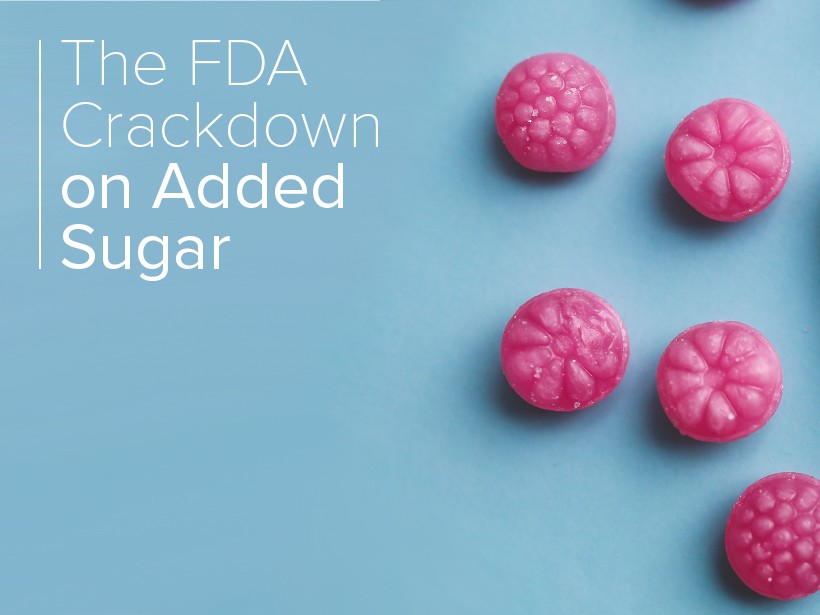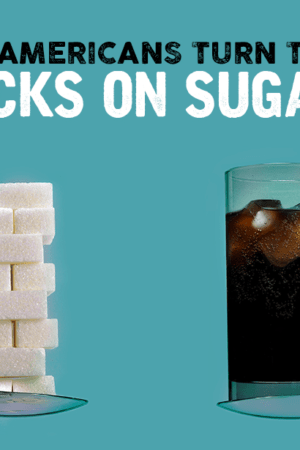By July of this year, it is expected that the Food and Drug Administration’s new Nutrition Facts labels will be required on most common grocery store items. The big change? A new “added sugar” line below the product’s total sugar content, one which major food associations (including the American Bakers Association, American Beverage Association, and the American Frozen Foods Institute) fought against tooth-and-nail for years.1 Finalized in 2016, this long overdue revision will help consumers to understand the degree to which their diets are distorted by these unnecessary sugars.
A Long Fight for a Little Label
The sugar industry has a history of wielding influence over academics, scientists, and legislatures. In the 1960s, during a national push against cavities and tooth decay, the congressional task force recruited to recommend solutions was made up almost entirely of scientists and doctors on the industry’s payroll.2 It should come as no surprise, then, when the American Association of Family Physicians, for example, revealed its partnership with Coca-Cola to “teach consumers how to make the right choices and incorporate the products they love into a balanced diet and a healthy lifestyle.”3
In the face of the sugar industry’s immense financial and political power, independent researchers have, for decades, been trying to convince the FDA to amend its labels. In 1999, the Center for Science in the Public Interest devoted a 63-page petition to the “added sugars” line, warning of a 28 percent per capita increase in added sugar consumption since 1983.4 Of the new label, the Center said that it would help consumers reduce their risk of obesity, type 2 diabetes, and heart disease.5
Grumbling Defeat for Sugar
In response to the new label, the Sugar Association released a statement saying, “We are concerned that the ruling sets a dangerous precedent that is not grounded in science, and could actually deter us from our shared goal of a healthier America.”6 One notable industry exception during this process was Mars, makers of M&Ms candy, which came out in support of the new regulations in an effort to boost transparency, and criticized the industry’s emphasis on its own “science.” “We do not want to be involved in advocacy-led studies that so often, and mostly for the right reasons, have been criticized,” said its vice-president of public affairs Matthias Beringer.7
The new Nutrition Facts label is really only the first step in response to the insidious problem of added sugar. According to Gary Taubes in his 2017 book Sweet Death: How the Sugar Industry Created a Global Crisis, “It was as though the sugar industry had decided en masse…that if a product wasn’t sweetened at least a little, our modern palates would reject it.”8 When added sugars are in everything from muffins to yogurt to canned foods, the problem is not simply deciding which foods to avoid. Instead, it seems, a vast reconsideration of sugar and the role it plays in our diets is on the horizon.
NUTRITIONAL DISCLAIMER
The content on this website should not be taken as medical advice and you should ALWAYS consult with your doctor before starting any diet or exercise program. We provide nutritional data for our recipes as a courtesy to our readers. We use Total Keto Diet app software to calculate the nutrition and we remove fiber and sugar alcohols, like erythritol, from the total carbohydrate count to get to the net carb count, as they do not affect your blood glucose levels. You should independently calculate nutritional information on your own and not rely on our data. The website or content herein is not intended to cure, prevent, diagnose or treat any disease. This website shall not be liable for adverse reactions or any other outcome resulting from the use of recipes or recommendations on the Website or actions you take as a result. Any action you take is strictly at your own risk.
- For Keto, the Everyday Research Says it All - March 6, 2019
- Huge Harvard Study Backs Up the Wide-Ranging Benefits of a Low-Carb Diet - February 25, 2019
- Experts Convene for Keto Conference - July 30, 2018





Thanks, Joe!